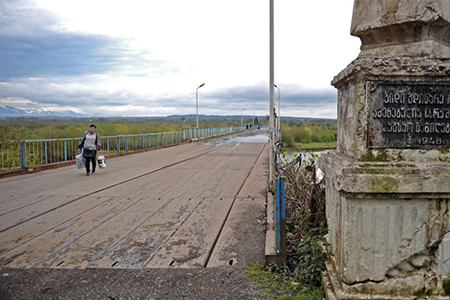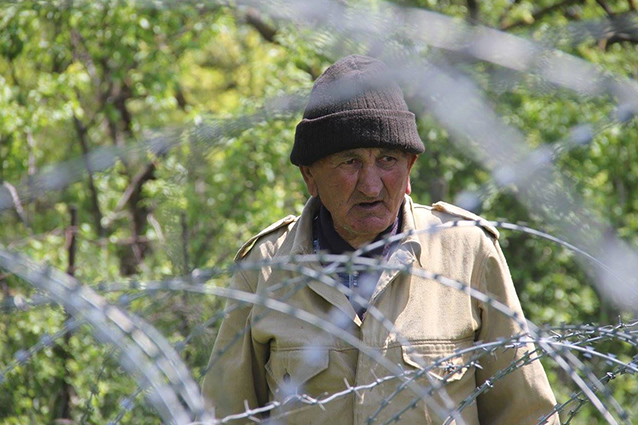Geneva International Discussions to address situation in Abkhazia and Tskhinvali

A Georgian delegation will participate in the Geneva International Discussions on March 28-29 where issues pertaining to the Georgia-Russia conflict will be discussed in depth.
The Georgian Foreign Ministry says Russia’s recent provocative actions on Georgia’s occupied regions of Abkhazia and Tskhinvali (South Ossetia) will be on the top of agenda.
Topics that will be in special focus:
- so-called referendum on changing Tskhinvali region’s name to ‘the Republic of South Ossetia – the State of Alania”;
- integration of the Tskhinvali army into the Russian Armed Forces;
- closing of crossing-points connecting Abkhazia with the rest of Georgia and its heavy burden on the local population.
The Georgian delegation will once again raise the question of the safe return of refugees and internally displaced persons to their original homes.

Davit Valishvili and his family live behind the barbed wire fence at Khurvaleti village, Shida Kartli. Photo by Salome Modebadze/WIC
Since the Russia-Georgia war in August 2008 the Geneva International Discussions have been the only format of dialogue between Georgia and Russia.
It is chaired by the OSCE, the EU and the UN. Representatives from Tbilisi, Tskhinvali and Sukhumi, as well as Moscow and Washington take part in the discussions.
According to the August 12, 2008 Ceasefire Agreement, issues including non-use of force, creation of international security arrangements in breakaway Abkhazia and Tskhinvali region and the safe and dignified return of IDPs and refugees are essential subjects of discussion.
The six-point ceasefire agreement that both Georgia and Russia signed after the five-day August 2008 war demands the withdrawal of Russian military forces from Georgian territory to create conditions for the peaceful resolution of the conflict.
As of today, only four countries recognise Georgia’s breakaway regions as independent republics; these are Russia, Nicaragua, Venezuela and Nauru.
Georgian delegation hopes that Russian participants will attend both working groups – one working on security issues and another on reviewing the humanitarian situation and the discussion of several issues relating to documentation, crossings, language of instruction, missing persons and cultural heritage.
 Tweet
Tweet  Share
Share